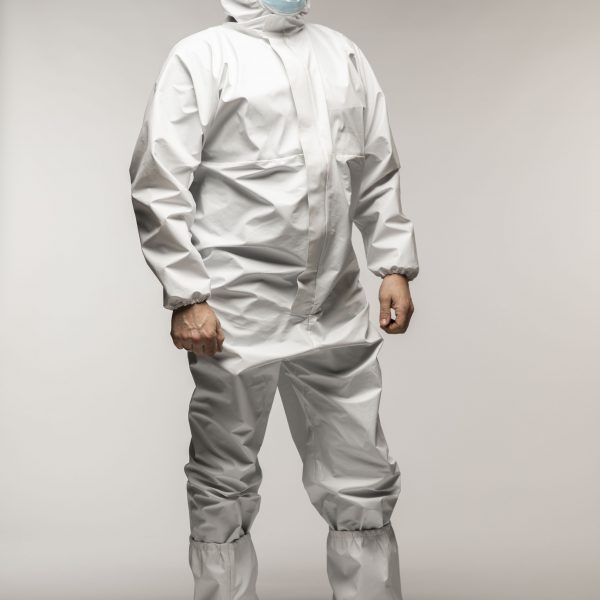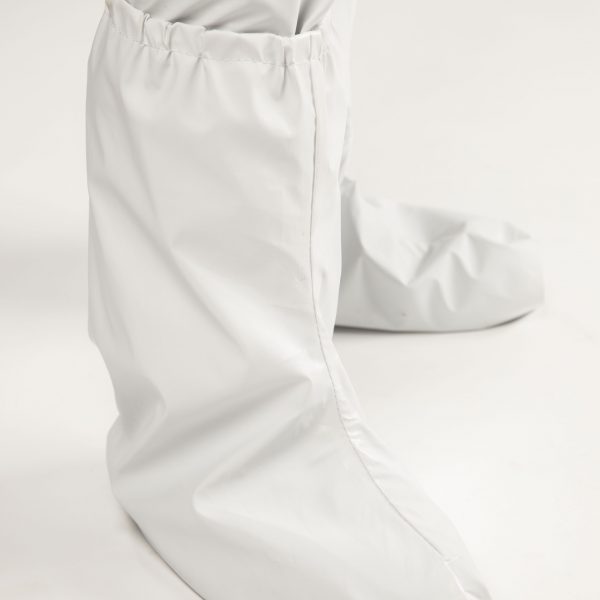Polish company Sanwil have developed a light, waterproof and breathable antivirus fabric that defends against coronavirus and other microorganisms.
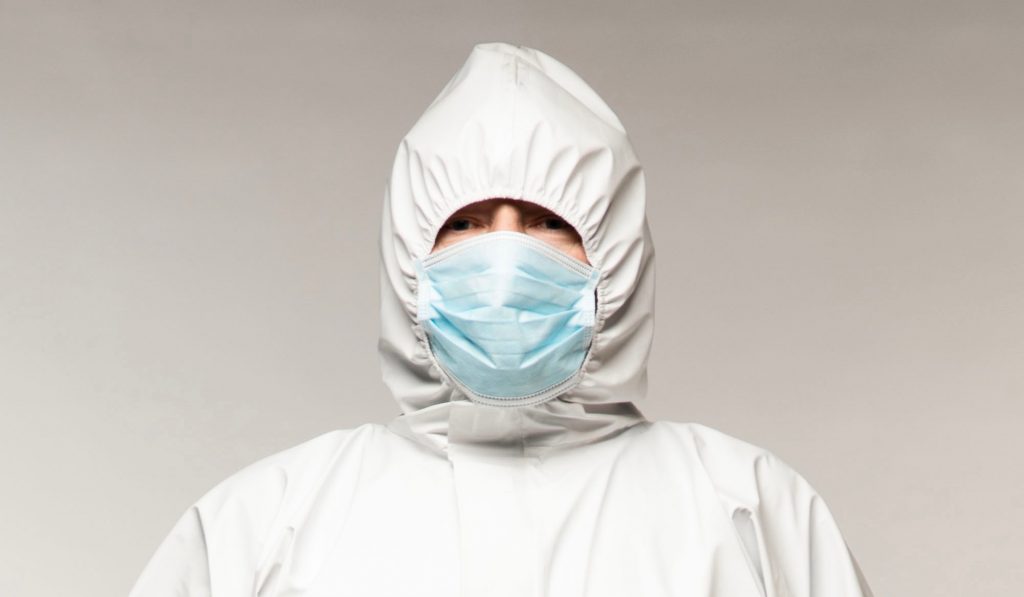
-
The Polish company Sanwil has developed an antivirus material for protective suits and covers for hospital bed mattresses, which protects against infection of coronavirus and other microorganisms.
-
The material is made of polyester knitted fabric, on which a layer of polyurethane is applied. The fabric is impervious to microorganisms, it is waterproof and breathable, and some varieties are also virucidal and bactericidal.
-
The interest in the new material is so great that the company is making up for losses caused by the Covid19 crisis.
“A self sufficient mobile home” – read more about technologies invented by Central European companies
InnovateCEE: You have developed an antiviral material for protective suits.
Witold Śliwa,Sanwil: No. We developed antiviral material for hospital mattresses.
But now the companies use this material to make protective suits. It’s not like the suit material and the cover material must have different characteristics?
Not necessarily. Our material – Sanmed –is delicate, light, a little like artificial leather. Now it has turned out that its features, which are useful in hospital mattress covers, are also very useful in protective suits.
We invented Sanmed a few years ago to solve the problem of mattresses becoming dirty in hospitals. At that time in hospitals, and probably many hospitals still do it today, cotton covers were used. Cotton is breathable, pleasant to the skin and can be washed at high temperatures. But it has a major drawback: it’s not waterproof. Everything that spills on the cover – blood, water, urine – leaks and soaks into the mattress. In order not to soil the mattress, a plastic film was put under the cotton cover. The film does not absorb liquids and it’s a barrier that it doesn’t let bacteria or viruses through, but it doesn’t breathe and is unpleasant to the human body.
Sanmed replaces these two layers. It combines the advantages of cotton and film, and there are no disadvantages. It is a barrier for microorganisms, so it protects against infection. It doesn’t let water through, so if something spills, it won’t get into the mattress. It is easy to clean, can be disinfected with a 70% alcohol solution and can be washed in a washing machine at 95 degrees. It is vapour-permeable, so if there is moisture in the mattress it will evaporate out of the mattress through the cover.
It has now been shown that these features – water resistance, vapour permeability and barrier properties – are crucial when using Sanmed to manufacture protective suits.
CENTRAL EUROPEAN INNOVATION IN THE FIGHT AGAINST CORONAVIRUS
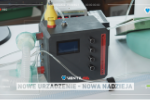 VentilAid: $200, open source ventilator for COVID-19 patients
VentilAid: $200, open source ventilator for COVID-19 patients
A Polish start-up Urbicum has built VentilAid: $200, open source, 3D printed ventilator that may help half the patients hospitalized due to Covid-19
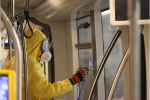 Anti-covid surface coating effective for one year
Anti-covid surface coating effective for one year
Hungary-based company Resysten has invented a hygienic coating that kills the coronavirus and other microbes. For the coating to work only light is needed
What technology do you use?
Sanmed is a coated material. It’s made up of two layers. The inner layer is a polyester knitted fabric, which provides mechanical resistance to tears and punctures and allows the material to be sewn and welded. An outer layer (top coat) is applied to the fabric. It is polyurethane with special micropores, and that is what forms the protective layer, through which no bacteria or viruses penetrate.
We did tests in our lab, and then the same tests were done in Centexbel Institute in Belgium and in Polish Proteon Laboratory, in which water or artificial blood was contaminated with viruses and bacteria, and then spilled to our material under pressure to examine which viruses and bacteria would penetrate to the other side. Studies confirm that no viruses or bacteria can pass through Sanmed, even when under high pressure.
The material does not lose its properties after washing?
No. We have certificates from the Polish and Belgian laboratories which confirm that after 10 washings the material does not lose its antibacterial, antiviral and antifungal properties and still has the highest class of resistance. This number of 10 washes is only because our customers very quickly needed the results of these tests to sew the overalls, and such tests are ongoing. That’s why we decided on 10 laundries. At home, in our company laboratory, we did 50 test washings and still these properties were preserved.
The material doesn’t just let the microorganisms through, does it kill them?
It depends on which version we’re talking about, because we have several. By modifying the chemical composition or structure, we get a material with slightly different properties. The basic version is a material impervious to viruses and bacteria, breathable and non-flammable. We have a version with the addition of silver zeolite, which has virucidal and bactericidal properties, meaning the material works in two ways: mechanically it does not permeate microorganisms and it kills those that come into contact with it. In other versions, we change, for example, the weave of the knitted fabric, so that we obtain greater or lesser extensibility of the material. For mattress covers, more stretching is needed so they can be easily stretched on the mattress and then shrunk. With suits this feature is not useful, so we use a different weave.
Where did you get the idea to make suits from the fabric designed for mattress covers?
Because of the Covid19 crisis. Our company produces coated materials mainly for five industries: furniture, upholstery, automotive, footwear and clothing, and medical. We make materials for everything that is soft and coated – from sofas and couches, car seats, to dental tables and protective clothing. But this year, after three months, almost all the companies stopped due the pandemic: shopping malls stopped operating, companies making car seats stalled, orders dropped almost to zero. We started to look for solutions to what to do. This was the moment when a lot of questions arose about where to buy personal protective equipment like overalls and masks. After brainstorming at the company, we found out that you can make suits from Sanmed. We quickly sent the first free batches of material to companies that make protective clothing. The response was positive. The material was accepted and customers started to sew suits for police, border guards, local authorities, etc. Then, so that there was no doubt that the material was suitable for this, we sent samples for testing to the Centexbel Institute in Belgium and to the Proteon Laboratory in Poland. We quickly got the approvals from both labs that Sanmed has the highest level of protection.
What is the interest in the textile today?
The interest is very high. At the moment 80 percent of our production is Sanmed. What we have lost on all other markets, in furniture, upholstery, automotive and footwear, we have managed to almost make up thanks to Sanmed, and although four out of five industries that we serve are still standing, the tasks assumed in the budget are carried out as usual.
About Innovator
Witold Śliwa is an automotive and export director at Sanwil. Sanwil Polska is the largest Polish producer of PVC and PU coated materials, operating since 1974. The company produces leather-like materials for furniture, contract, medical, cosmetics, automotive, marine as well as clothing and technical materials, footwear and artificial fur.










